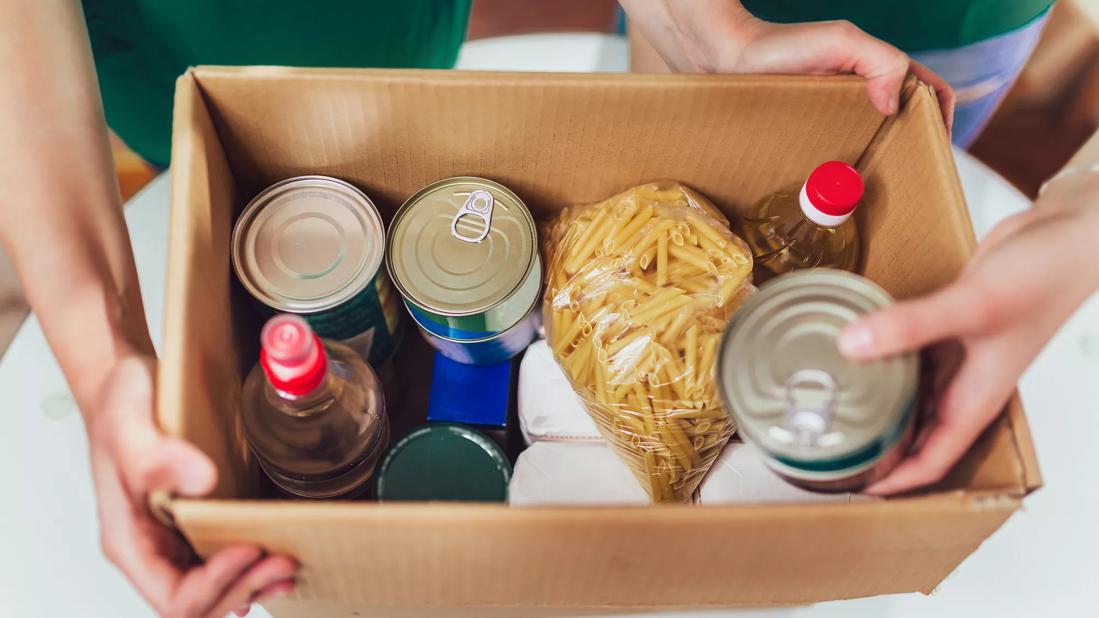Outreach programs support residents, build relationships

Image content: This image is available to view online.
View image online (https://assets.clevelandclinic.org/transform/32bfecb2-84ea-4510-920c-ae6b63a938d6/foodbank-box-of-food-1217752899)
Box of goods for food pantry
Nursing isn’t simply a profession; it’s a calling. And that calling leads many nurses to participate in community outreach programs beyond the walls of the healthcare facilities where they work.
Advertisement
Cleveland Clinic is a non-profit academic medical center. Advertising on our site helps support our mission. We do not endorse non-Cleveland Clinic products or services. Policy
“It’s really important for nurses to understand our purpose beyond what we do just by the bedside rails,” says Terri Murray, MSN, RN, NE-BC, chief nursing officer at Cleveland Clinic South Pointe Hospital. “We also have to understand the people we serve and the gaps in their receiving better access to care, food, education and economic stability. We have to break down the barriers. We are all responsible for it.”
Nurses and other caregivers at South Pointe Hospital routinely break down those barriers through participation in numerous community outreach programs.
The hospital runs a mobile food pantry twice a month, distributing food donated by the Greater Cleveland Food Bank. South Pointe employees bag, box and hand out food to nearby residents.
“In 2023, we served 3,981 households and 11,232 individuals, and we provided 86,134 pounds of food out of our back door,” says Murray.
Nicole Pride-Allen, BSN, RN, CV-BC, an ambulatory cardiovascular clinical nurse who grew up across the street from the hospital, volunteers at the mobile food pantry. She spreads the word about the program and the importance of healthy eating.
“When patients come in for appointments, I tell them we are passing out fruits and vegetables,” says Pride-Allen. “If they don’t know how to cook something, I print out a recipe so they can go home, try it and be successful making new foods.”
A local church lets South Pointe Hospital use the back portion of its land to plant a community garden. Hospital staff and medical students from Ohio University’s Heritage College of Osteopathic Medicine plant and care for the garden. The fresh produce is available to community residents.
Advertisement
“I just love that garden!” says Murray. “When I see community members outside with their bag picking green beans and tomatoes to take home, it fills my soul.”
During the summer, South Pointe Hospital also hosts a farmers market.
Each June, dozens of staff members from South Pointe Hospital participate in the “Neighbors Helping Neighbors” beautification day. Volunteers perform light landscaping work, including weeding, pruning, mulching and planting flowers, at homes in the Warrensville Heights, Ohio, community. Local companies pitch in to supply gardening tools, mulch and flowers.
When Neighbors Helping Neighbors launched in 2010, the program supported three homes. It has since grown to include more than 50 homes.
Jennifer Katlen, MSN, MEd, APRN, CCRN, GERO-BC™, a clinical nurse specialist at South Pointe Hospital, and her husband participate in the volunteer day annually, as well as work at the mobile food pantry, which Katlen co-facilitates. She says that community outreach is integral to forming relationships with patients.
“Building trust is imperative to building a healthy community,” says Katlen. “When residents see us out there helping them get produce at the mobile food pantry or working in the gardens or their yards, they remember us and they trust us next time they need care.”
Nurses at South Pointe Hospital also get out in the community and educate residents, particularly on the top 10 diagnoses of their patients. Sandra Smith, BSN, RN, SCRN, quality coordinator, focuses on stroke and sepsis awareness. She hands out pocket cards with signs and symptoms at local churches, nursing homes and businesses, as well as during the Warrensville Heights Memorial Day parade.
Advertisement
“These are my neighbors,” says Smith, who lives in the community. “I want to see my people educated on what they need to have in their arsenal to get the timely care they need, especially as it relates to time-sensitive disease processes like stroke and sepsis.”
Smith adds that it’s incredibly rewarding to enlighten people about disease prevention.
“If caregivers embrace that title and avail themselves to people – if they step outside of their comfort zone and give of themselves – they will see how rewarding it is,” she says.
Murray offers four tips to nursing leaders who want to launch community outreach programs:
Community outreach is a critical step to identify differences in health outcomes. In the ZIP code where South Pointe Hospital resides, residents die an average of 16 to 18 years before those in a ZIP code two miles away, says Murray. That grabs the attention of caregivers and propels them to act.
Advertisement
“We are living in times where we need to be more than just nurses at the bedside,” says Murray. “It’s easy to just do your job and go home, be we have to connect to our purpose.”
Advertisement
Advertisement
Regional organizations collaborate to address nurse faculty shortage
How wellness habits help nurses flourish
Planning continues with critical, patient-focused input from nursing teams
Strengthening care through targeted resources and frontline voices
Embracing generational differences to create strong nursing teams
CRNA careers offer challenge and reward
An unexpected health scare provides a potent reminder of what patients need most from their caregivers
Cleveland Clinic Abu Dhabi initiative reduces ICU admissions and strengthens caregiver collaboration